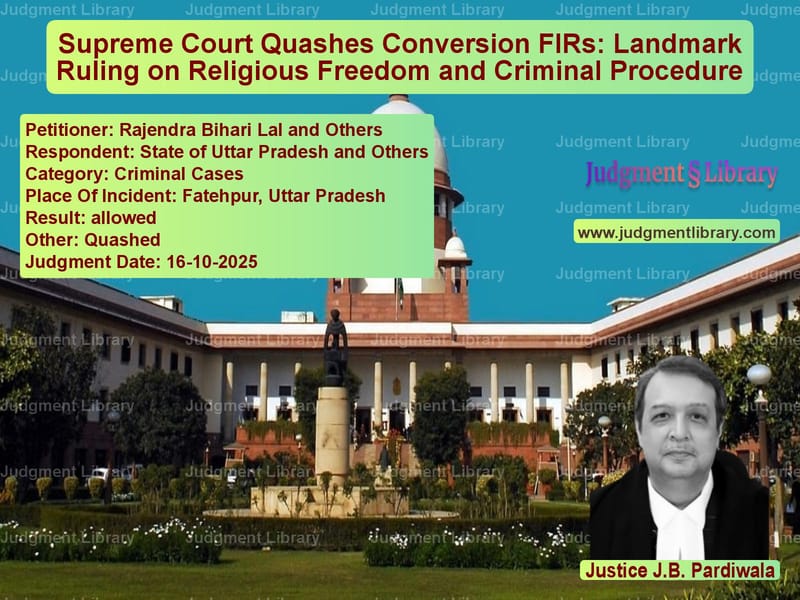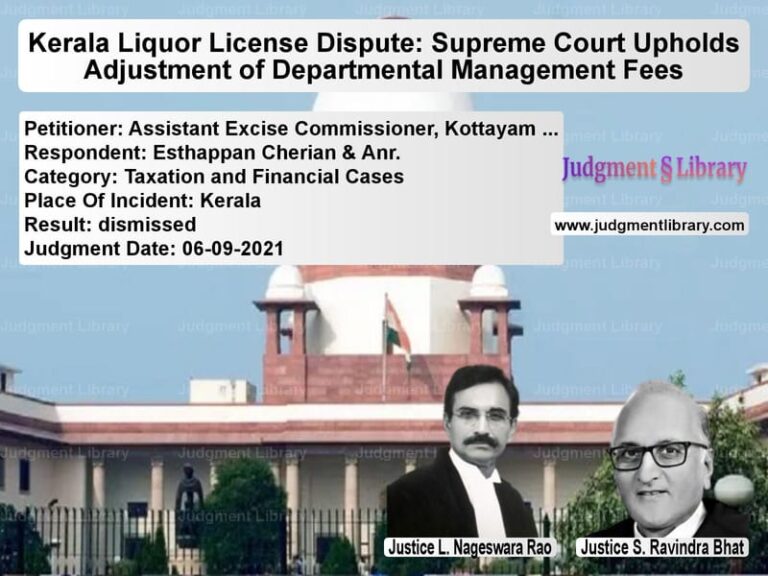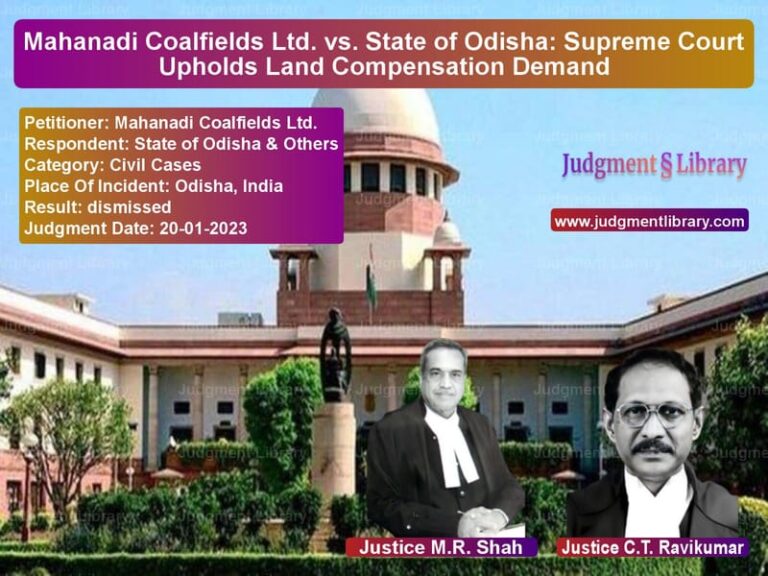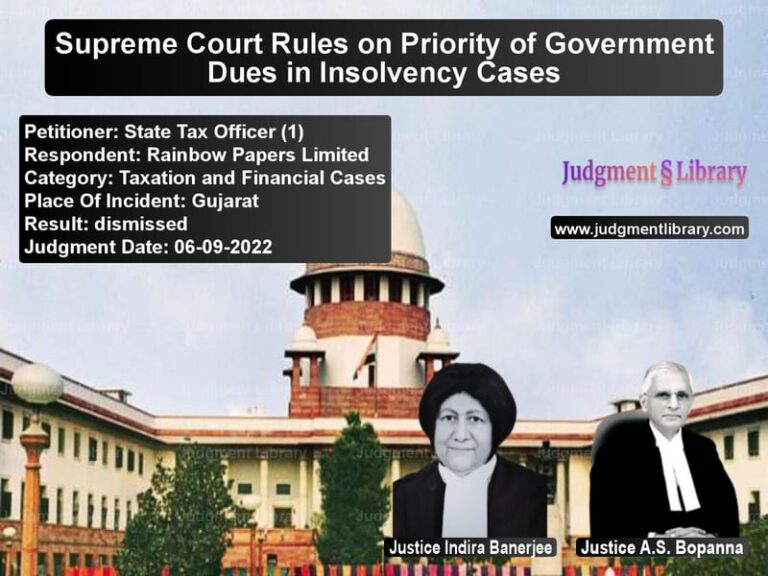Supreme Court Quashes Conversion FIRs: Landmark Ruling on Religious Freedom and Criminal Procedure
In a significant ruling addressing the delicate intersection of religious freedom and criminal law, the Supreme Court of India delivered a comprehensive judgment quashing a series of First Information Reports (FIRs) registered under the Uttar Pradesh Prohibition of Unlawful Conversion of Religion Act, 2021. The batch of petitions, which included writ petitions and criminal appeals, challenged the legality of six separate FIRs concerning alleged incidents of mass religious conversion.
The legal battle revolved around FIRs numbered 224/2022, 47/2023, 54/2023, 55/2023, 60/2023, and 538/2023, all registered in various police stations across Uttar Pradesh. These cases presented complex questions about the validity of criminal proceedings initiated under a special legislation that sought to regulate religious conversion.
At the heart of the controversy were allegations that around 90 persons belonging to the Hindu community were illegally converted to Christianity at the Evangelical Church of India in Fatehpur on April 14, 2022. The subsequent FIRs, registered months later, claimed to be from victims of these alleged conversions, though the circumstances of their registration raised serious questions about their authenticity.
The petitioners, including Rajendra Bihari Lal and others, argued vehemently for quashing these FIRs, citing multiple legal infirmities. Their counsel, Mr. Siddharth Dave, presented several crucial arguments before the court. He contended that “a plain reading of the FIR fails to disclose any cognizable offence” and emphasized that “the subsequent FIRs pertaining to the very same alleged incident of conversion are hit by the dictum laid by this Court in T.T. Antony”. He further argued that “Section 4 of the unamended U.P. Conversion Act mandates that only the specified classes of persons can file an FIR under the U.P. Conversion Act” and since the complainant in FIR No. 224/2022 wasn’t from these specified classes, the FIR was fundamentally flawed.
Other senior counsel representing various appellants reinforced these arguments. Ms. Mukta Gupta pointed out that “the scheme of Cr.P.C. doesn’t allow a subsequent FIR to be registered for the very same incident as only the information earliest in point of time is relevant for the purpose of Section 154 of the Cr.P.C.” She also highlighted the apparent mala fide intention behind the subsequent FIRs, suggesting they were lodged to overcome the lacunae in the first FIR.
The State of Uttar Pradesh, represented by the learned Attorney General Shri R. Venkataramani, mounted a vigorous defense of the FIRs. He argued that “the Petitioners could not have directly come before this Court seeking the quashing of FIR Nos. 224/2022 and 47/2023 respectively without first approaching the jurisdictional High Court” and that no exceptional circumstances existed to invoke Article 32 jurisdiction. On the crucial question of who could lodge an FIR under the Conversion Act, the Attorney General submitted that “the general principle of criminal law is that the investigation of an offence can be triggered by any credible information emanating from any source” and thus notwithstanding the unamended Section 4, investigation could be undertaken with or without complaints made under that section.
The Attorney General emphasized the seriousness of the alleged offences, stating that “the FIRs forming the subject matter of challenge in the present batch of petitions disclose the commission of a cognizable offence as the clear allegations are that around 90 persons belonging to the Hindu religion were being converted en-masse to Christianity… by use of fraud, cheating, force and coercion.” He urged the court to consider that “unlawful conversions, particularly those involving the exploitation of vulnerable groups, tend to violate constitutional morality and undermine the human autonomy and dignity.”
The Supreme Court, in its meticulous analysis, delved deep into both factual and legal aspects of the case. The court made several crucial observations about the nature of religious freedom in India. It noted that “The People of India are given the liberty of thought, expression, belief, faith and worship. This liberty is an embodiment and expression of the secular nature of the country.” Quoting from its earlier decisions, the court emphasized that “Article 25 of the Constitution guarantees to every person, and not merely to the citizens of India, the freedom of conscience and the right to freely profess, practise and propagate religion.”
The court particularly highlighted the intimate connection between religious freedom and privacy rights, observing that “privacy is essential to the exercise of freedom of conscience and the right to profess, practise and propagate religion vide Article 25.” It further noted that “the freedom of conscience as ensured under Article 25 falls within the zone of purely private thought process” and that “privacy is a condition precedent for the rights under Article 25 to come into being.”
On the specific issue of multiple FIRs, the court reaffirmed the principle established in T.T. Antony v. State of Kerala, stating that “there can be no second FIR and consequently there can be no fresh investigation on receipt of every subsequent information in respect of the same cognizable offence or the same occurrence or incident giving rise to one or more cognizable offences.” The court found that FIR Nos. 54, 55, and 60 of 2023 were virtual reproductions of each other and pertained to the same incident, thus violating this fundamental principle.
The court’s examination of the investigation records revealed shocking irregularities. It noted that affidavits from victim-witnesses appeared to be prepared in a “cyclostyled manner” with the same draft being copied and pasted after changing personal details. The court discovered glaring errors in these affidavits, such as one deponent named Sanjay Singh claiming that his name in the Aadhar card was changed from “Rajesh Kumar Dwivedi” to “Rajesh Kumar Samson” – clearly indicating that these documents lacked credibility.
The court also found that statements recorded under Section 161 of Cr.P.C. of different witnesses, recorded more than a year apart, bore “striking degree of similarity, not just in the version of the events narrated, but also in the structuring of the sentences, style of narration, and length of the statement.” This led the court to conclude that “the statements have possibly been reproduced from a pre-decided prototype with change in the personal particulars depending upon the witness making the statement.”
On the crucial legal question about who can lodge an FIR under the U.P. Conversion Act, the court interpreted the unamended Section 4 strictly, holding that it restricted the categories of persons who could initiate prosecution. The court reasoned that “the initiation of prosecution for the alleged offence of illegal religious conversion stands circumscribed and may be set in motion only at the behest of the aggrieved individual or, in the alternative, by his or her immediate family members or blood relatives.” It explained that this restriction was rooted in the recognition that “the freedom to profess, practice, or propagate religion, and concomitantly the liberty to renounce or embrace a faith of one’s choice, is a facet of the fundamental rights guaranteed under Articles 21 and 25 of the Constitution respectively.”
The court powerfully articulated why unrelated third parties should not be permitted to initiate such proceedings: “To permit the initiation of criminal proceedings at the instance of strangers or unrelated third parties would amount to an impermissible intrusion into this protected sphere of individual freedom and would open the door to frivolous or motivated litigations, thereby diluting the constitutional guarantees of personal liberty and freedom of religion.”
After thorough examination of both law and facts, the Supreme Court concluded that continuing the criminal proceedings would result in a travesty of justice. It quashed all the impugned FIRs and consequential proceedings, bringing to an end what appeared to be a legally untenable prosecution that threatened both individual freedoms and the secular fabric of the nation.
This judgment serves as a significant precedent on multiple fronts – it reinforces the constitutional protection of religious freedom, establishes strict parameters for the application of anti-conversion laws, and underscores the judiciary’s role in preventing the misuse of criminal law to harass citizens. The court’s meticulous examination of the evidence and its firm commitment to constitutional principles demonstrate the crucial balancing act required when dealing with matters involving both religious freedom and criminal law.
Petitioner Name: Rajendra Bihari Lal and Others.Respondent Name: State of Uttar Pradesh and Others.Judgment By: Justice J.B. Pardiwala.Place Of Incident: Fatehpur, Uttar Pradesh.Judgment Date: 16-10-2025.Result: allowed.
Don’t miss out on the full details! Download the complete judgment in PDF format below and gain valuable insights instantly!
Download Judgment: rajendra-bihari-lal-vs-state-of-uttar-prade-supreme-court-of-india-judgment-dated-16-10-2025.pdf
Directly Download Judgment: Directly download this Judgment
See all petitions in Fraud and Forgery
See all petitions in Extortion and Blackmail
See all petitions in Bail and Anticipatory Bail
See all petitions in Fundamental Rights
See all petitions in Constitution Interpretation
See all petitions in Judgment by J.B. Pardiwala
See all petitions in allowed
See all petitions in Quashed
See all petitions in supreme court of India judgments October 2025
See all petitions in 2025 judgments
See all posts in Criminal Cases Category
See all allowed petitions in Criminal Cases Category
See all Dismissed petitions in Criminal Cases Category
See all partially allowed petitions in Criminal Cases Category







